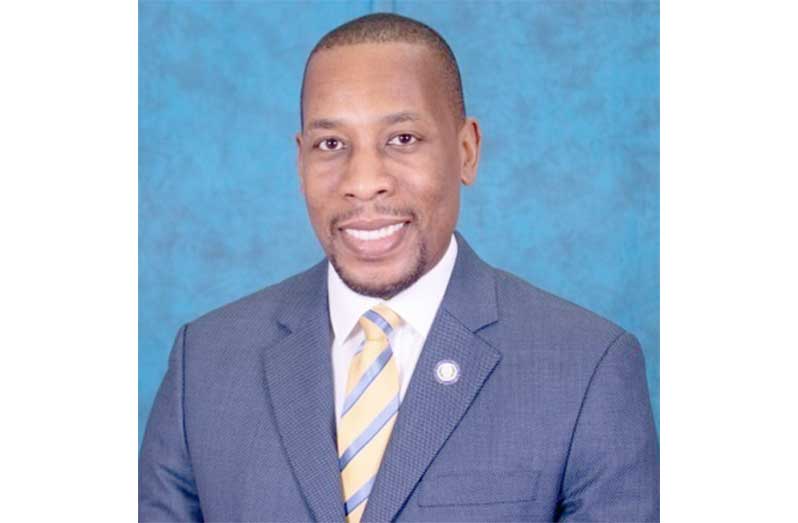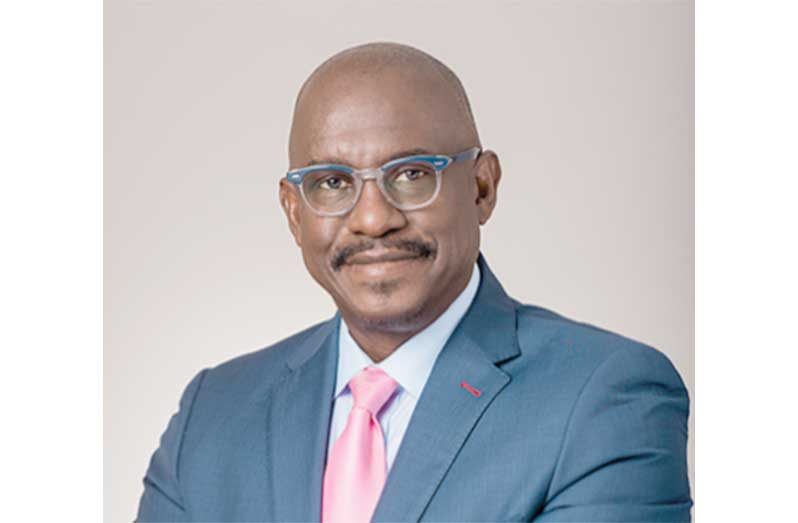– points to new import pathways, collective action key to trade resilience
AS the Caribbean region grapples with supply chain challenges and rising costs, the question of where goods are sourced has come into focus.
Recognising the urgency of this issue, the Caribbean Private Sector Organisation (CPSO) has been leading efforts to identify practical ways to de-risk imports and further broaden sourcing opportunities beyond traditional markets.

This came to a head during a lengthy webinar session hosted by the CPSO and the Eastern Caribbean Central Bank on Wednesday titled, “De-Risking CSME Imports: Examining the scope for goods market fulfilment from non-traditional sources.”
During the webinar, regional experts highlighted the need to diversify trade relations, strengthen resilience and lower costs for both businesses and consumers.
Chairman of the CPSO, E. Gervase Warner, disclosed that the organisation’s ongoing work has positioned it to tackle the question of whether viable alternatives exist to the region’s heavy reliance on the United States following the announcement and imposition of reciprocal tariffs.
He noted that opportunities abound and could produce substantial savings through regional importers, but it will take some work to flesh out opportunities.
Warner highlighted that the findings of the CPSO’s research stretch far beyond academic exercises. Instead, they provide practical options for policymakers and private sector players to mitigate rising import costs, reduce the burden on consumers, and even enhance competitiveness.
Adding to this was CPSO’s Chief Executive Officer and Technical Director, Dr Patrick Antoine, who emphasised the critical timing of the study.
He described the current global environment as “a rather unusual time” in which conventional approaches will no longer suffice.
“The call of the moment for us in CARICOM and for us in the OECS is for us to recognise that this is a rather unusual time and we cannot do usual things,” Dr Antoine said.
While the focus of the study was on import diversification, he said that it should not be considered in isolation, as export growth, intra-regional trade, and stronger supply chain efficiency are equally important pillars.
He, however, stressed that the region must avoid harming itself by persisting with fragile or over-concentrated import sourcing arrangements.

“The need for us to more efficiently develop our import sourcing relationships,” he added, “is central to ensuring that we do ourselves no further harm.”
Meanwhile, the Governor of the Eastern Caribbean Central Bank (ECCB), Timothy Antoine, said that there should be decisive, collective follow-through on the CPSO’s work.
It was against this backdrop that he drew attention to the Caribbean region’s food security target of reducing imports by 25 per cent by 2025, a goal which he said is already slipping.
“We are not on track,” he said while adding that with the timeline now extended to 2030 and warned against repeating this cycle of delay.
“What I do not want is that five years from now… It’s another plus five, because we’re nowhere yet,” he said.
While boosting domestic production is a necessity, Antoine noted that the region must also be pragmatic in addressing reliability, quality and cost of imported goods.
The study presented by the CPSO, he said, provides valuable insight to inform these decisions.
The governor went on to add that with the study, there needs to be a move from analysis to execution.
“When we have reviewed all of this work, the question would be, so what? What are we going to do with these studies?” he asked.
It was then that he stated, “It has to be collective action, regional approaches to solving these challenges with respect to how we de-risk, how we diversify our imports.”
With this in mind, Antoine said that regional unity could be the Caribbean’s greatest asset.
“I firmly believe that regional collective action is, in fact, our superpower as small states,” he said.
While the principle of integration is widely accepted, the governor posited that it has not been embraced often enough in practice.
The CPSO’s research, he continued, should serve as a catalyst for coordinated policy responses that advance resilience, lower the cost of living, diversify trade logistics, and build a more competitive Caribbean economy.
Finding non-traditional/alternative sources of imports, it was disclosed, was not just an option but an imperative, which will require collaboration to become a reality.



.jpg)









